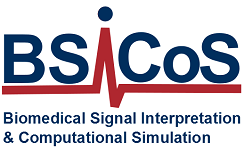-
Proyectos
Towards improved management of cardiovascular diseases by integrative in silico-in vitro-in vivo research into hearts structure, function and autonomic regulation – PID2019-105674RB-I00
Fecha de inicio
2020
Fecha de finalización
2023
Coordinador
Esther Pueyo
Funding agency
CICYT (ref. PID2019-105674RB-I00)
Cardiovascular diseases (CVDs) represent the first cause of mortality in the world, causing over one third of all global deaths. Among CVDs, heart failure, atrial fibrillation and ischemic heart disease are some of the most prevalent diseases, posing a heavy burden on healthcare systems and society as a whole. Although recent years have seen extraordinary advances in CVD research, we still have a long way to go to fully understand these diseases. The major risk factor for all CVDs is aging. The precise mechanisms underlying age-induced decline in cardiac activity and the related increase in susceptibility to disease in human remain to be fully elucidated. Other non-cardiac diseases and conditions, like chronic kidney disease and fetal growth restriction, are also associated with elevated cardiovascular risk.
This project aims at providing a comprehensive characterization of cardiac changes induced by the mentioned highly prevalent CVDs as well as by physiological aging and non-cardiac diseases/conditions associated with increased cardiovascular risk. By conducting multi-scale investigations (molecular, ion channel, cell, tissue, whole-heart, body surface) iterating between wet and dry research, this project seeks to improve the current understanding on the pathophysiological mechanisms of the investigated diseases. The conducted research is expected to serve as a basis for the discovery of more accurate risk stratification markers derived from processing of electrocardiogram (ECG) and electrogram (EGM) signals or from peripheral blood samples. Importantly, by targeting the mechanisms identified as underlying disease-induced remodeling and/or contributing to arrhythmia development, the proposed research is expected to lead to more efficient tailored therapies for the investigated diseases.
